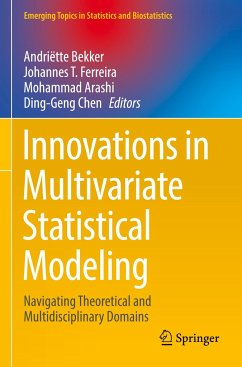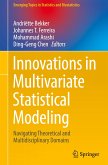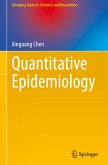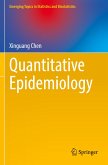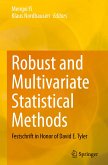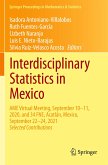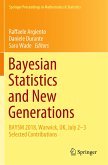Multivariate statistical analysis has undergone a rich and varied evolution during the latter half of the 20th century. Academics and practitioners have produced much literature with diverse interests and with varying multidisciplinary knowledge on different topics within the multivariate domain. Due to multivariate algebra being of sustained interest and being a continuously developing field, its appeal breaches laterally across multiple disciplines to act as a catalyst for contemporary advances, with its core inferential genesis remaining in that of statistics.
It is exactly this varied evolution caused by an influx in data production, diffusion, and understanding in scientific fields that has blurred many lines between disciplines. The cross-pollination between statistics and biology, engineering, medical science, computer science, and even art, has accelerated the vast amount of questions that statistical methodology has to answer and report on. These questions are often multivariate in nature, hoping to elucidate uncertainty on more than one aspect at the same time, and it is here where statistical thinking merges mathematical design with real life interpretation for understanding this uncertainty.
Statistical advances benefit from these algebraic inventions and expansions in the multivariate paradigm. This contributed volume aims to usher novel research emanating from a multivariate statistical foundation into the spotlight, with particular significance in multidisciplinary settings. The overarching spirit of this volume is to highlight current trends, stimulate a focus on, and connect multidisciplinary dots from and within multivariate statistical analysis. Guided by these thoughts, a collection of research at the forefront of multivariate statistical thinking is presented here which has been authored by globally recognized subject matter experts.
It is exactly this varied evolution caused by an influx in data production, diffusion, and understanding in scientific fields that has blurred many lines between disciplines. The cross-pollination between statistics and biology, engineering, medical science, computer science, and even art, has accelerated the vast amount of questions that statistical methodology has to answer and report on. These questions are often multivariate in nature, hoping to elucidate uncertainty on more than one aspect at the same time, and it is here where statistical thinking merges mathematical design with real life interpretation for understanding this uncertainty.
Statistical advances benefit from these algebraic inventions and expansions in the multivariate paradigm. This contributed volume aims to usher novel research emanating from a multivariate statistical foundation into the spotlight, with particular significance in multidisciplinary settings. The overarching spirit of this volume is to highlight current trends, stimulate a focus on, and connect multidisciplinary dots from and within multivariate statistical analysis. Guided by these thoughts, a collection of research at the forefront of multivariate statistical thinking is presented here which has been authored by globally recognized subject matter experts.

